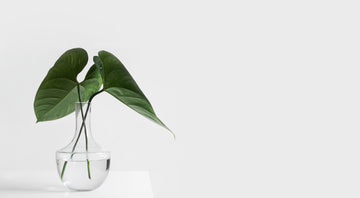A DISCUSSION ABOUT SUSTAINABILITY
What is sustainability? With an increased demand for sustainable and ethically-made clothes, can we even tell these days? It can be difficult to sort out what kinds of products are environmentally conscious, or eco-friendly. Here are some facts about the fashion industry to consider:
- Transparency in a brand’s supply chain is a big deal, both for keeping track of the environmental impacts of your production processes and for supporting garment workers. Supply chain management is a complex job, and a lot goes into making a garment - especially when international factories are employed. When you support local, transparent brands like DAUB, your purchase directly supports our Vancouver-based Canadian seamstresses and we know exactly what goes into our garments.
- The textile industry is a $3 billion business and employs more than 60 million workers globally. With the scale of the industry, it has historically been difficult to regulate, and so globally-recognized certifications are a great source of guidance when verifying if a brand is taking steps toward becoming more sustainable.
- Fabric and fabric dye are integral parts of a garment - they carry you through the day! We consider this when we make our clothes, and we do our best to make sure that you can be confident that you’re wearing high-quality materials that don't include the use of dangerous substances.


WHAT WE’RE DOING TO BE ENVIRONMENTALLY-CONSCIOUS
Sustainability has become a daunting and popular term for the fashion industry and consumers to tackle. From issues surrounding textile and dye waste, and the use of chemicals throughout a garment's production process, there is a lot to consider. DAUB makes it easy for you to choose to be eco-conscious by using fabrics that are certified STANDARD 100 by OEKO-TEX in our ethically-made Basics collection. Daub + Design also works mindfully in small batches and continuously monitors stock levels to make sure that we are working in limited quantities. We pride ourselves on our high quality, hand-dyed garments, dyed by exhausting our dye baths to reduce waste in our production process.

WHAT IS STANDARD 100 BY OEKO-TEX?
The STANDARD 100 by OEKO-TEX is a globally-recognized certification that tests for harmful, unsafe, and toxic substances at every stage of a garment’s production process. If a garment is approved by OEKO-TEX, it has been tested in a lab and is free from more than 600 damaging chemicals and substances. With 18 research and testing facilities and over 25 years of experience, an important part of OEKO-TEX’s philosophy is transparency - so, you can check your label online to verify its authenticity. We believe that formaldehyde, nickel, and harmful dyes don't need to be in your closet! That's why our Basics collection is certified by OEKO-TEX. We want to help protect your body's largest organ: your skin!

WHY IT MATTERS
The OEKO-TEX benchmark is a way for clothing brands to measure the safety and environmental impacts of their clothing in a way that is easy for customers and producers to verify. We feel good knowing that a large part of our collection is certified by OEKO-TEX, and proven to be environmentally-responsible.
Where our garments aren’t certified by OEKO-TEX, we are constantly on the lookout for new fabrics and new ways to improve our commitment to sustainability. Our planet (and you!) deserve the best we have to offer!


1 comment
Great insights!